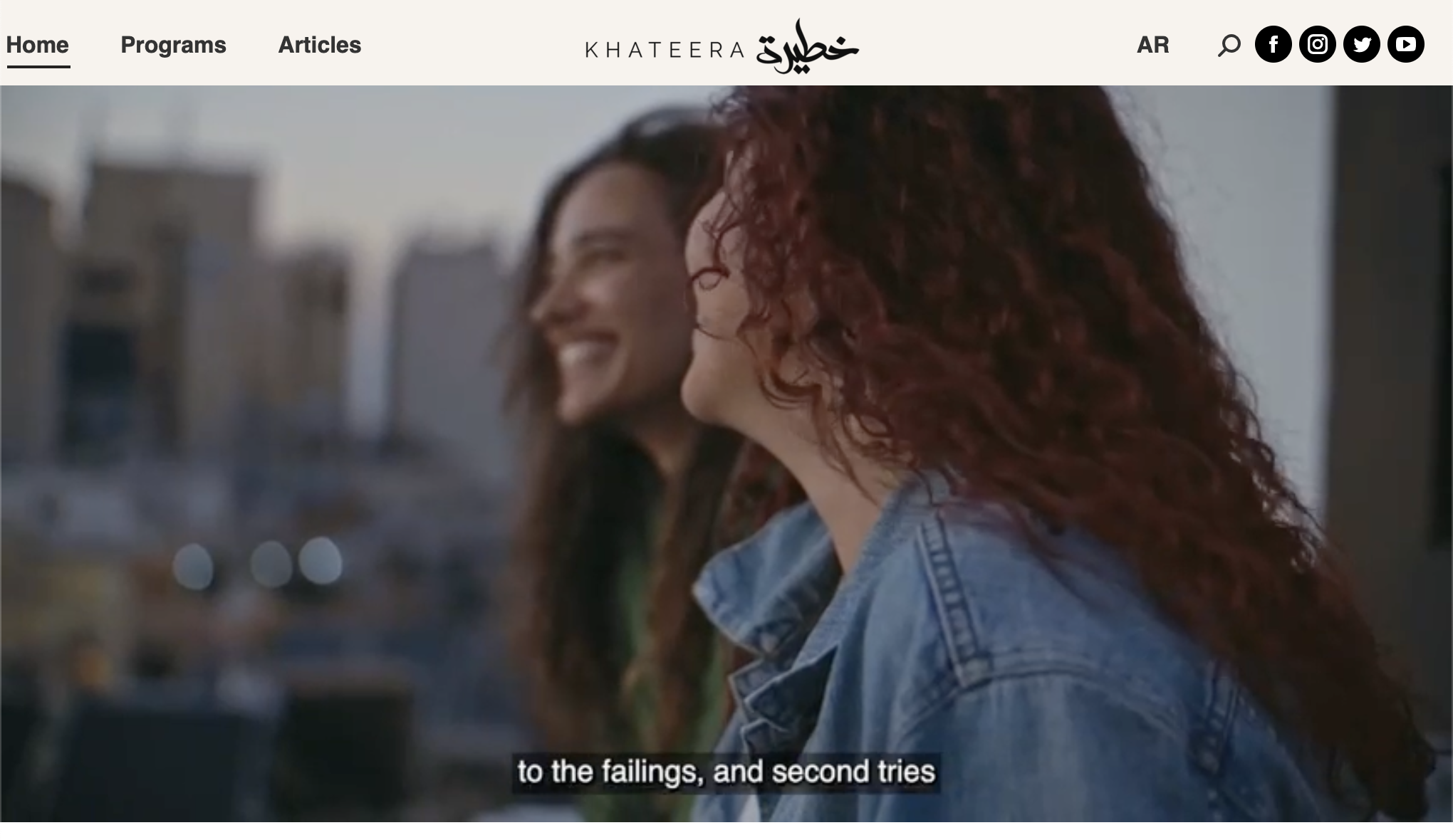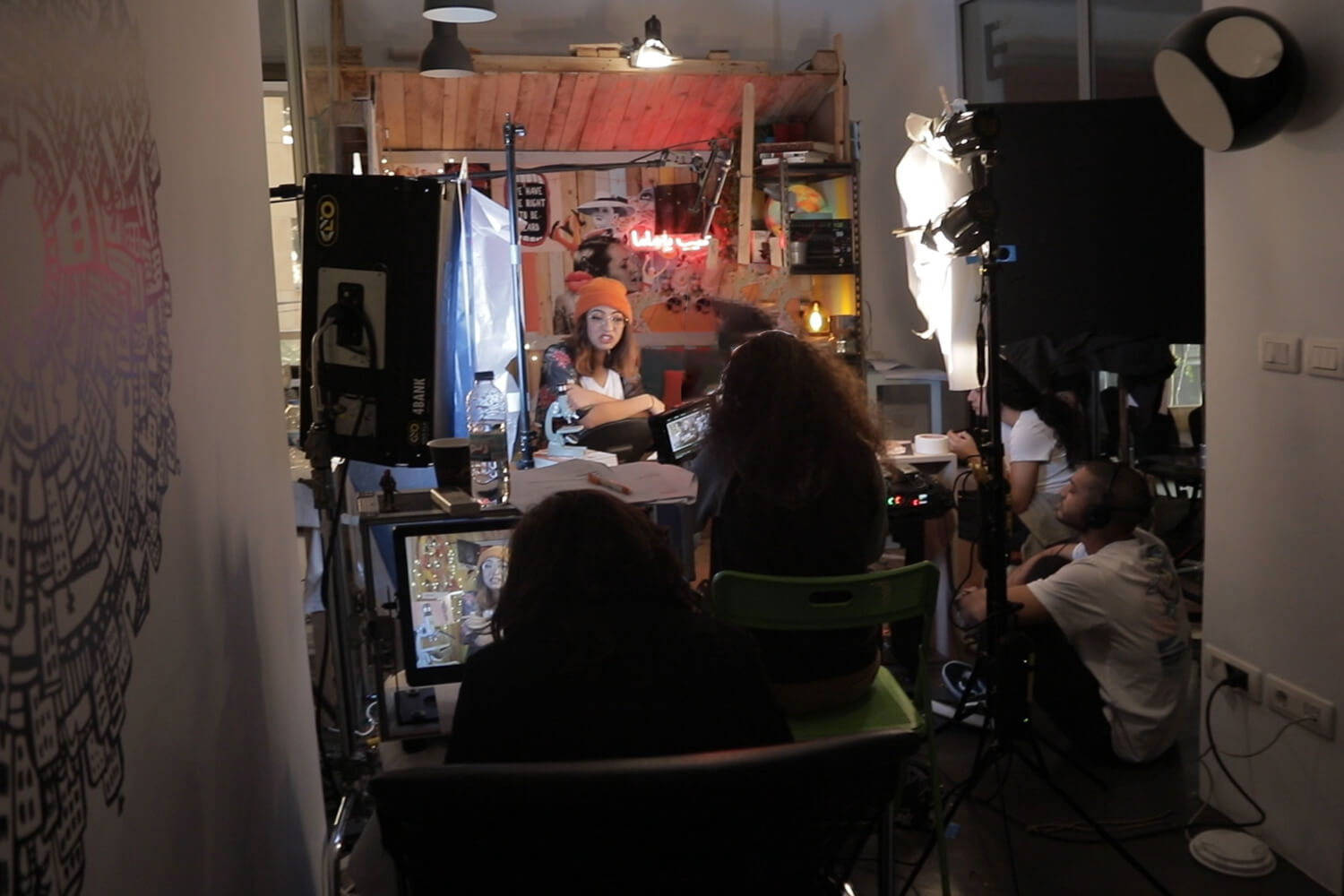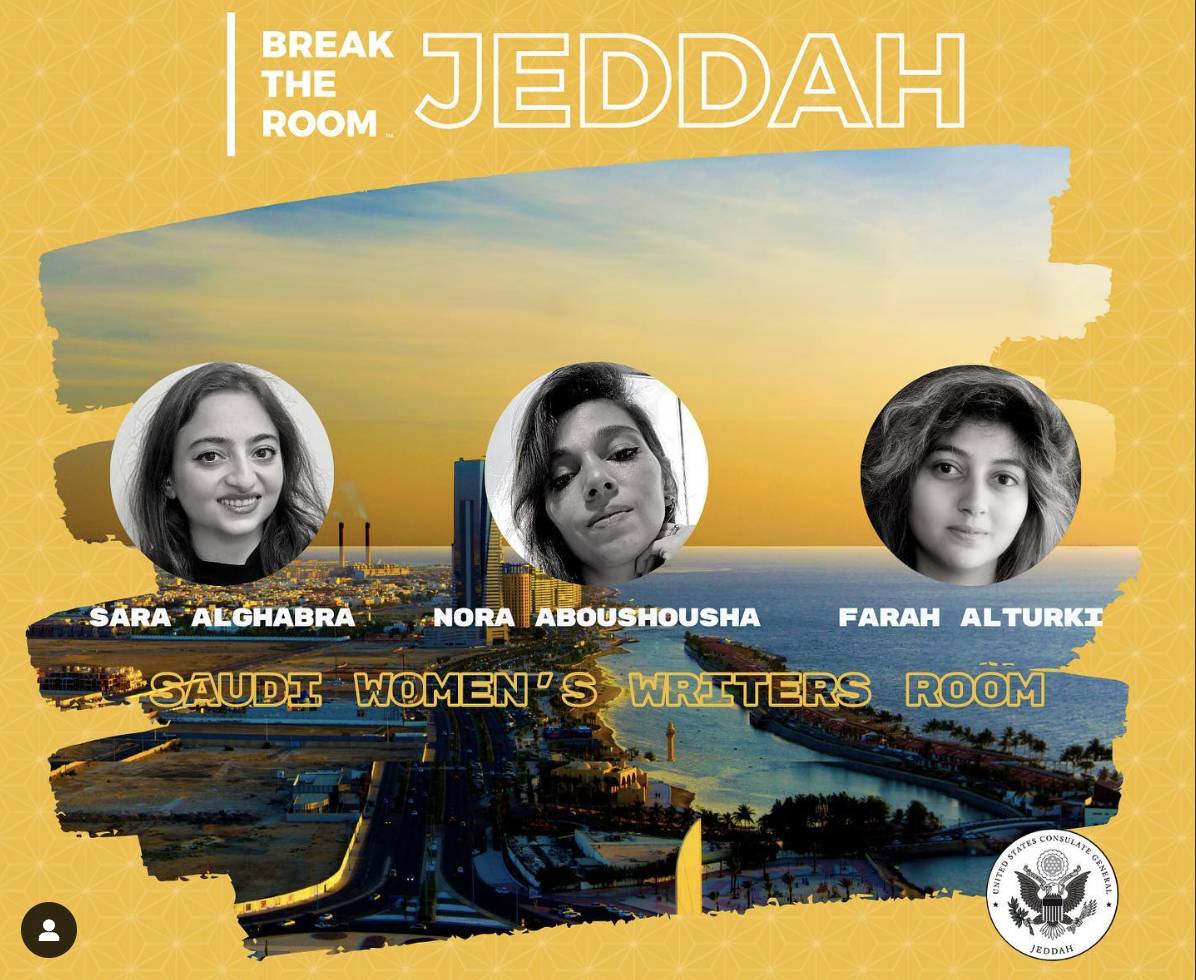Disruptive Media
It will take 115 years for the Middle East & North Africa to achieve gender parity*
But progress can’t wait. Media is a powerful tool for change, which is why we’re harnessing it to create a fairer society. We develop progressive narratives, educate men and women about their rights, and reshape public opinion around gender roles in local communities.
*Source: World Economic Forum
HOW IT WORKS
We actively collaborate with progressive content creators and media platforms in the Middle East and North Africa (MENA), recognising the importance of driving change from within the system.
Incubate women-led media initiatives in MENA and sparking conversations on gender equality
Boost gender-equitable content by amplifying women’s voices in media
Empower women professionals in media by offering capacity building, training, and livelihood opportunities
Shape narratives for gender equality by creating dialogue on critical women-led topics, challenging stereotypes
Our Initiatives
Since 2010, we have incubated and supported a number of local women-led media initiatives in the region: Radio Nisaa, B100Ragl, Smatouha Minni and Khateera.
We work to empower women in journalism, digital content providers and organisations using communication for behavioural change.
Collaborating with influencers, universities, local NGOs, and media outlets, we are sparking conversations on gender equality with diverse audiences.
Radio Nisaa
A pioneering women-led community radio station in Palestine
Broadcasting since 2010, Radio Nisaa FM is the first women’s Arabic speaking radio station in the Middle East. With an audience of 20% of the adult population in the West Bank, it challenges gender stereotypes and breaks down barriers in a patriarchal society.

Be100Ragl
A 3-season Arabic radio + digital series tackling gender discrimination at work, in families, and in society
Beyond broadcasting, we collaborated with grassroots organisations for screenings, debates, and discussions on gender stereotypes. Across three seasons from 2013 to 2018, B100 Ragl garnered over 1 million listens and 2.6 million views.

khateera
Women-led digital platform highlighting diverse experiences and issues of women in MENA
Incubated by Womanity since 2019, Khateera (meaning “dangerous woman”) is now an independent entity with various successful content formats, including the flagship YouTube show “Smatouha Minni.” Khateera boasts 1.2+ million followers across its channels.

Smatouha Minni
A YouTube satire challenging gender norms in the MENA region
Smatouha Minni (meaning ‘You Heard It From Me’ in English) is a satirical YouTube show dismantling traditional narratives about gender in the MENA region. It enjoyed two successful seasons in 2020 and 2023, accumulating over 20 million views across episodes and channels. Topics covered include gendered roles, domestic violence, sexual harassment, women’s health, and more.

writers' rooms
Championing women writers for streaming success
In 2020, we partnered with Break the Room (BTR) Media to launch a writers’ development room for women in the region, in response to the growing popularity of streaming services. Our aim is to equip women writers with the skills to create scripts for platforms such as Netflix and Shahid, providing guidance through the pitching processes. We’ve organised three writers’ rooms, supporting 10 aspiring women scriptwriters, both in UAE and Saudi Arabia.
Here's a snapshot of our impact so far
1.3M
followers of Khateera
3.5M
cumulative views of B100Ragl
10+
women writers trained through Writers’ Rooms
500K
listeners of Radio Nisaa
20M
cumulative views of Smatouha Minni
30%
of Radio Nisaa’s listeners reported changing behaviour as women or towards women
“The media industry is multi-faceted and highly dynamic, making it critical to constantly connect with different players and actors in order to understand the constantly evolving nuances of the media landscape. Womanity has been instrumental in connecting us to the wider ecosystem, helping us maintain and evolve this crucial aspect of learning.”
Rana Askoul
Co-CEO, Khateera







